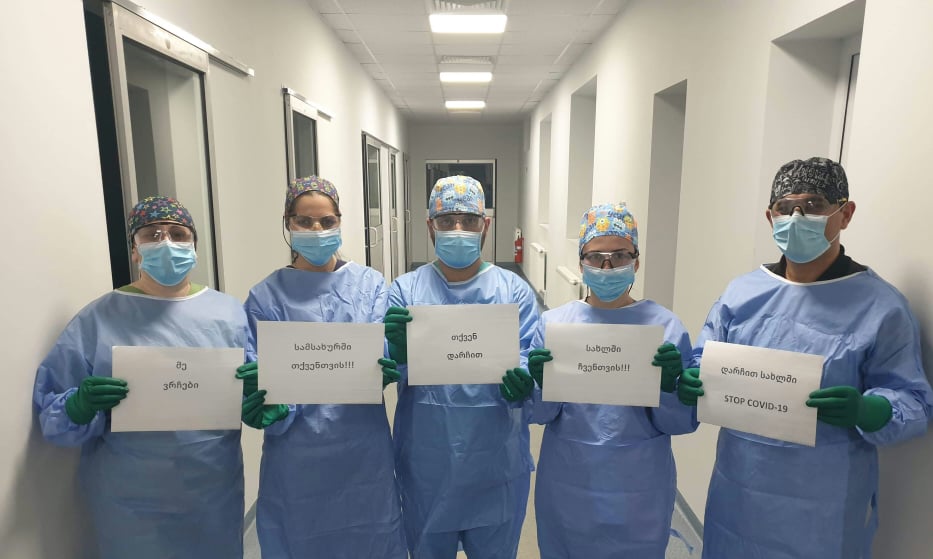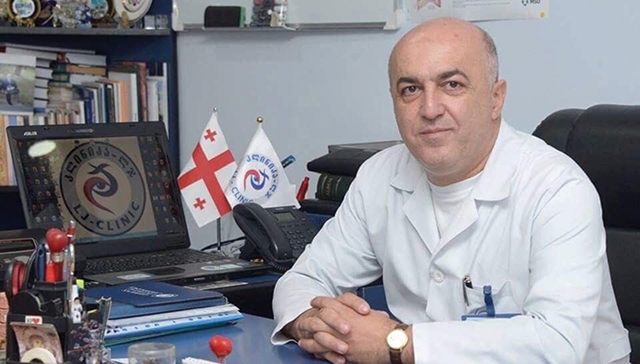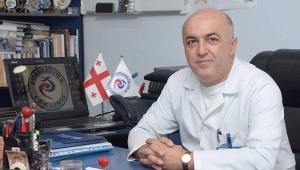Co-Founder of Kutaisi Clinic on COVID-19 & the Georgian Psyche
INTERVIEW
The coronavirus had Georgia announce a state of emergency on March 21 and it seems the number of restrictions imposed on citizens by the government for their own safety is only going up. COVID-19 is not the first challenge for modern medicine. However, such a massive mobilization like the one needed now has never been seen, especially in Georgia. Following the recommendation of the World Health Organization to keep social distance, GEORGIA TODAY virtually “sat down” with the co-founder of Kutaisi’s LJ & Company Clinic, Dr Zaza Lominadze, to discuss COVID-19, its risks and possible scenarios.
“Coronavirus is definitely the biggest challenge for modern medicine,” Dr. Lominadze told us. “MERS and SARS were not as big challenges as this for sure, even though those illnesses were serious and infected thousands, and the mortality rate was quite high. Coronavirus has existed for a long time, but COVID-19 is a new, mutated type of it. As we’ve seen, it can spread very fast. So the virus is not only a challenge for Georgia and countries with many coronavirus cases: it’s a big problem for the whole world. In just a matter of three months, the virus has spread unimaginably. If I’m not wrong, as of March 22, there are only 7 countries in the world that have not detected a single case of COVID-19. And while that fact is scary itself, we should also keep in mind that there is a big possibility that even these countries have coronavirus cases but they have not detected them yet”.
The example of Italy has shown that keeping medical staff informed is especially important for effective prevention. What measures does your clinic take to ensure this?
Italy’s example has shown the whole world that medical personnel, no surprise, are at big risk, and it is clear that the staff needs to be ready and well-trained. However, when it comes to any infection, doctors should already be fully prepared. We were careful followers of relative protocol even before the coronavirus emerged. Then again, coronavirus needs special precautions: covering of the whole face, mouth, nose, and eyes, so that the virus can’t get into the body. The medical staff of both LJ and LJ Company has been trained. Unfortunately, like most of the other countries, China, Italy, the US, etc., we too are in deficit of the needed equipment, but we have refilled our storage as much as was possible at the time, and hopefully, we will endure the worst case scenarios, if they come. We are really doing the best we can. It is truly heartbreaking that in Italy, the first 800-odd members of medical staff were infected because they were not appropriately trained and ready for the virus to hit. Many doctors have died in the fight against the virus, which is unfortunate and once more underlines the importance of special training.
Our clinic has sent all the pregnant doctors, nurses or helpers on paid leave while others, fully trained, are trying to handle the situation. Fortunately, we have done 150 coronavirus tests to date in the clinic and none of them came back positive.
How do you manage to effectively mobilize the staff and situation in the clinic when information and recommendations regarding COVID-19 change almost by the hour?
When you first come face to face with an illness that has no guidelines, protocol, vaccine or particular treatment, as a doctor, you start treating according to the symptoms that the patients show, with medicaments. Georgian infectologists, led by Tengiz Tsertsvadze, have been successfully using Plaquenil for a month and a half now, though President Trump ordered this medication be used in America just a few days ago. This medication was used in the past to defeat malaria and arthritis and now it is being used to treat COVID-19, too. Georgia has run out of Plaquenil as, prior to the emergence of COVID-19, only about 250 were sold in Georgia a year. People should know, though, that it is not used for prevention, for which it is totally ineffective and can lead to many side effects. Plaquenil is only for those who have already been infected.
If it comes down to it, how many infected patients will you be able take in and how many serious cases will LJ & Company Clinic be able to care for?
In both clinics, we have 200 hospital beds, of which 20 beds are intensive care beds fully equipped with breathing machines. At the first stage, we have the LJ and Company Infectious Hospital ready to take in patients, but if it becomes necessary, multi-profile clinic LJ will also receive patients. We have isolated and semi-isolated rooms with modern ventilation systems in the infections hospital, where we can start treating 30 patients at first, and over 60 patients during the next stage.

Georgia has had 54 coronavirus cases at the time of this interview. If the infection spreads widely in the country, in your opinion, how well will the country’s healthcare system cope?
This is a big challenge not only for Georgia but for every country. It is very difficult for any healthcare system to receive a big flow of patients during times of pandemic. If the number of COVID-19 patients rises immensely in Georgia, I think that the treatment of most patients should take place in field hospitals or at their homes in self-isolation, and only critical and serious patients should be taken in by the hospitals. Of course, this should only be the case if the illness spreads immensely and not in the case as we have it now. The illness hits critical form mostly in the elderly and those patients with pre-existing illnesses. Fortunately, there’s a data of 0% mortality in children from years 0 to 15, and even in youth, the percentage almost comes down to zero.
With widespread COVID-19, doctors will need to tell patients with minor cases to stay home in self-isolation and leave hospital beds free for those with more serious cases. How big of a challenge will this be, considering the psyche of most Georgians?
We couldn’t get into heads of most Georgians that no more than 10 people should be in one space at one time, or that the distance between them should be 2 meters. So, I think that Georgian psyche “stands out” this way and we will have a hard time getting patients to stay in self-isolation. I’d also like to point out here that at least 28 priests have died from coronavirus in northern Italy, and most COVID-19 cases in South Korea can be traced to church. So, at times like this, we need to stand together, religious or not, and have people understand that keeping social distance and self-isolation at home is essential for surviving this virus. The virus lingers on surfaces for a long time, so we need to make sure that we wash our hands with soap and water often, as well as disinfecting the surfaces we are in frequent contact with, and staying home.
As a citizen and professional, what would be your prognosis for the region of Imereti, Georgia, and the world?
I think it will be better to answer this question in three months’ time. Today, no one can say anything and be sure of it. The economic crisis is a fact for one, which will last for a long time. The world needs to stand together is a fact, for two. As for Georgia, we need to forget our stubbornness, follow medical recommendations, and lend a helping hand to our medical staff by staying at home and then we’ll survive this for sure.
By Nini Dakhundaridze












